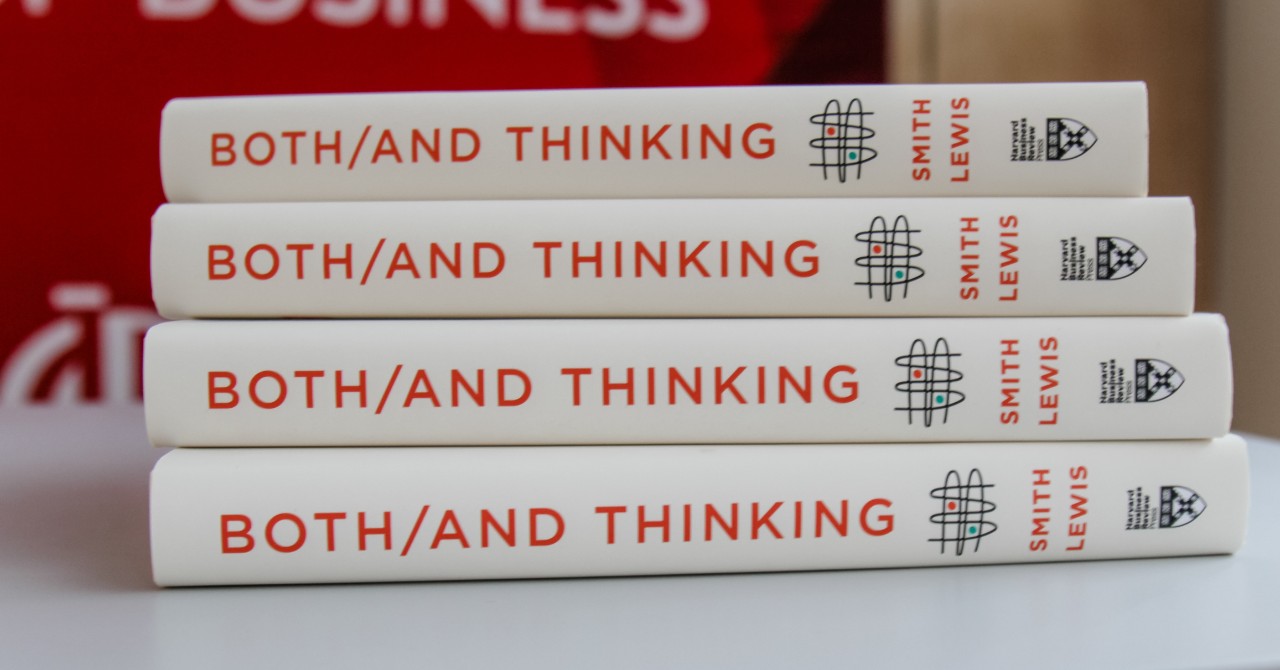
Newsweek: Use ‘both/and’ method to address differences in beliefs and values
New book from Lindner Dean Marianne Lewis offers positive outcomes
An increasingly divided political environment and navigating life in the post-pandemic era is spurning confirmation bias and tension among friends, colleagues and romantic partners.

Marianne Lewis, PhD, dean of the Carl H. Lindner College of Business.
And although an "either/or" approach — picking one side and defending it — might feel natural to defend differences in personal beliefs and values, “over time it can be limited at best and detrimental at worst,” according to Marianne Lewis, PhD, dean of the Carl H. Lindner College of Business, via an excerpt of her new book — “Both/And Thinking: Embracing Creative Tensions to Solve Your Toughest Problems” — posted in Newsweek.
Lewis, along with co-author Wendy K. Smith, Emma Smith Morris Professor of Management and co-director of the University of Delaware's Lerner Women’s Leadership Initiative, wrote in Newsweek that there is a productive way to achieve more effective discussions: both/and thinking.
“Both/and thinking involves valuing, rather than vilifying differences; embracing rather than dismissing conflicts,” Lewis and Smith wrote. “While not easy, our research shows that embracing both/and thinking results in more creative, lasting solutions and more satisfied people.”
Lewis and Smith’s research found four sets of tools for both/and thinking that can be used to embrace differences: "appreciate differences," "find commons goals," "reign in emotions" and "it’s an ongoing balancing act."
Next Lives Here
The University of Cincinnati is classified as a Research 1 institution by the Carnegie Commission and is ranked in the National Science Foundation's Top-35 public research universities. UC's medical, graduate and undergraduate students and faculty investigate problems and innovate solutions with real-world impact. Next Lives Here.
Related Stories
Most teens prescribed SSRIs did not have recommended follow-up...
April 30, 2025
The University of Cincinnati and Cincinnati Children's Hospital Medical Center's Martine Lamy commented to Medscape on new research that found fewer than half of the adolescents prescribed a selective serotonin reuptake inhibitor (SSRI) at two large Chicago pediatric primary care clinics had a follow-up visit within the recommended 6 weeks.
National brands entering Cincinnati en masse
April 29, 2025
Cincinnati Magazine featured University of Cincinnati’s Kim Busdieker in a retail deep-dive for its quarterly Realm Journal.
Lindner student athlete masters personal branding
April 29, 2025
In the pool, Jessica Davis is a sprinter, swimming the 200- and 5,000-meter freestyle events. Outside of the pool, the Master of Science in Marketing student brings the same energy, determination and agility to her studies and marketing practice.
